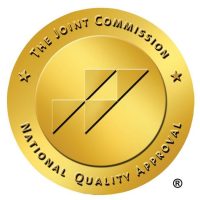Though the terms “Dementia” and “Alzheimer’s” are typically used interchangeably, there are many key differences between Alzheimer’s disease and Dementia. Typically referenced when describing memory issues in older adults, it is important to take note of how to distinguish the two diseases in order to determine the best treatment or aids. While there are currently no cures for either of these diseases, identifying exactly which type of memory loss an individual has will allow you to plan the best way to ease symptoms.
What Is Dementia?
Dementia is a general term used to identify a wide range of symptoms involving a decline in mental ability, many times, severe enough to interfere with daily life. Symptoms often include a decline in memory retention, frequent forgetfulness, poor judgment, or reduced reasoning. You may also notice changes in language, behavior, and decreased attention that interfere largely with typical daily functions. Dementia is not a specific disease, but an umbrella for conditions characterized by impairment of at least two brain functions, and is not a normal part of aging. There are many different types of dementia, each with its own symptoms and causes. Learn more about the early warning signs of Dementia.
What Is Alzheimer’s Disease?
Alzheimer’s disease, on the other hand, is a specific term for the most common cause of dementia— it accounts for 60-80% of dementia cases. A patient that has Alzheimer’s disease, caused by a combination of factors that affect the brain over time, starts to display signs of mental decline within their daily activities and interactions.
One of the earliest signs is forgetting new information, as it is believed to first affect the part of the brain associated with learning. Other early signs of Alzheimer’s include having trouble thinking of the right word, forgetting recent events or conversations, and confusing the names of objects or places. Thought to be caused by an abnormal build-up of proteins in and around brain cells, these proteins create plaques around brain cells while tangling other brain cells around, damaging cells and causing complex brain changes.
Although there are no known cures for Alzheimer’s disease or any type of dementia, there are certain treatments and therapies that can help ease symptoms in patients. Often, there are special programs designed to aid in a loved one’s cognitive function, through Memory Care facilities that specialize in taking care of patients with dementia or Alzheimer’s
How To Help Your Loved One Suffering From Memory Loss
Dealing with a loved one suffering from Memory loss can be one of the most rigorous and demanding experiences a caretaker can have. In many cases, one caretaker is balancing all of the responsibilities and supervision while trying to juggle their personal life simultaneously. While engaging the patient in cognitive activities is a great way to help them cope, it is not always easy. At Celebrate Senior Living, we offer Memory Care services and other care options to help your loved one live life to the fullest!
At Celebrate Senior Living, we are committed to celebrating the moments, victories, and memories that will last a lifetime for our senior residents and their loved ones. We are a Midwest-based foundation that serves Illinois and Indiana residents by offering a variety of medical, social, and personal care services through each of our different living options for seniors. This includes Independent Living, Assisted Living, Memory Care, and Skilled Nursing living options.
Explore one of our three senior living and retirement communities and select the location that fits your individual health, behavioral, and social needs.
If you or a loved one are interested in learning more about the senior living housing options we can offer, Celebrate Senior Living today!

